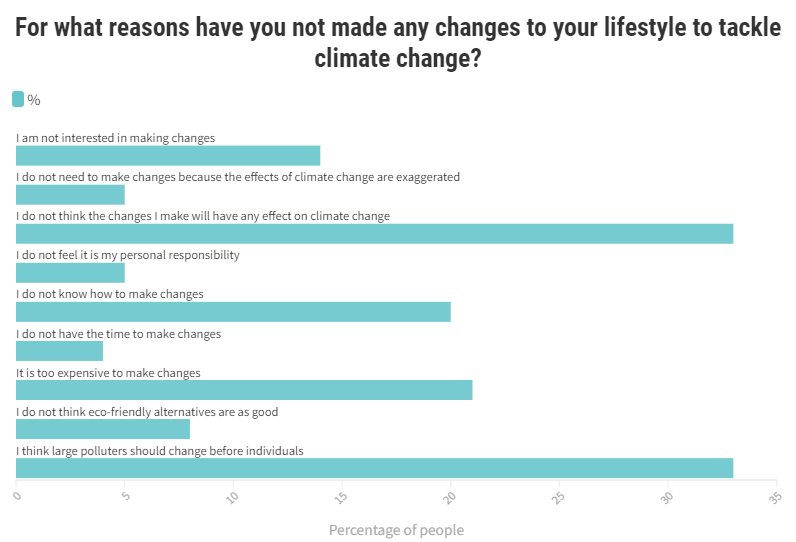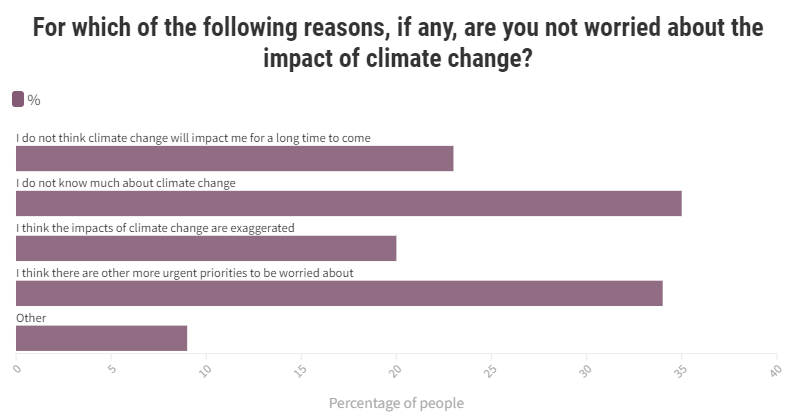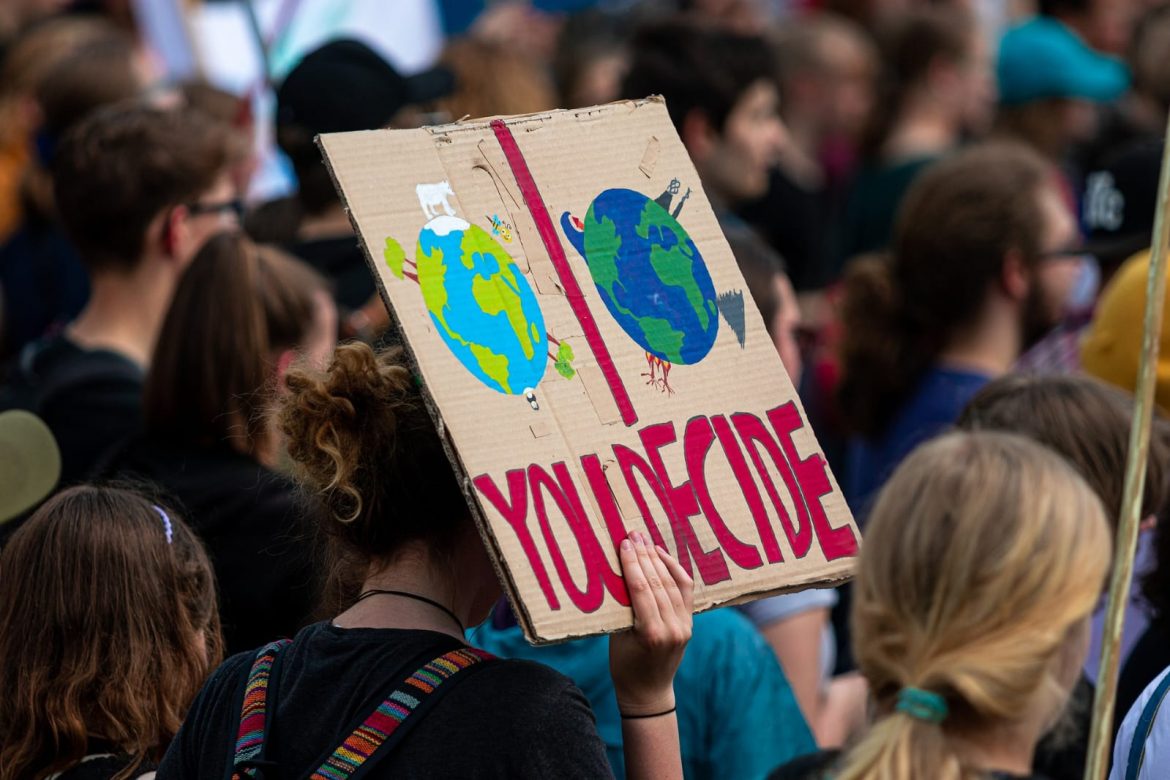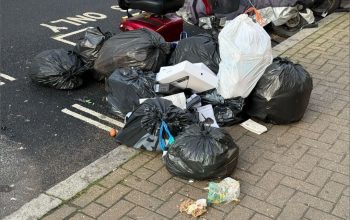As the climate crisis becomes increasingly urgent, more and more people are making a move to green living.
But despite the evident harm being done to the environment, some people struggle with the idea of changing their lifestyle to go green.
According to the Office for National Statistics (ONS), a fifth of adults reported that they had not made any lifestyle changes to help tackle climate change. Among the most common reasons for this was the belief that individual action will not have enough meaningful impact.
The data
An Opinions and Lifestyle Survey conducted by the ONS looked at public attitudes to the environment and the impact of climate change.
When asked the reasoning behind not making any lifestyle changes, 33 per cent said their changes would not make any difference and 33 per cent also said that large polluters should change before individuals.
Dr Tariq Shabbeer, secretary general and trustee at local environmental campaigning charity Save the World Club, said this was not true.
Shabbeer said: “One person’s action is enough. The reason why the environment is destroyed, is because of individuals. Of one person. We have to lead by example. We have to do our bit as individuals.”

He continued: “Armies are made of individuals. Individuals may vote politicians into power. Individuals change society, there’s the individual that is important.”
Another question in the survey challenged the reasons that individuals are not concerned about climate change, with 35 per cent citing lack of knowledge about climate change and 34 per cent saying there were bigger priorities to worry about.

Shabbeer said that change would start with the things we can do now in the local community, but it was still important to think globally.
He said: “Globally the ozone layer has been depleted so much, global warming is increasing, climate change is changing. Acid rain is happening more, the oceans are being polluted.”
The data also showed that individuals struggle with not knowing how to make changes and are worried about the expense of making eco-friendly changes. Whilst this may be true; in the long term it all evens out and there are simple, cost-effective steps that can be taken.
Just like charity, going green starts at home. Below is a beginner’s guide of small changes that can be made in everyday life, that are both financially and environmentally practical.

Start small
Whatever you do, start small. Start thinking more consciously about what you are purchasing and how you are using it.
Try switching out bottled water for tap water. Protect the environment in a simple way by reducing your use of plastic and it will cost you nothing. It is much more convenient too.
When shopping, make use of reusable bags. Many retailers sell reusable shopping bags for low prices, and they last a really long time. Also, when out shopping look for items with as little packaging as possible so disposal will be kept to a minimum.
Making small changes in your everyday life will go a long way.
Transport
Opting for walking or cycling can be a great option. Both have great health benefits long term and are also very cost effective. If that’s not possible then take the bus or carshare. Public transport is cheaper and more beneficial to the environment than going by car and maintaining the upkeep of the vehicle.
Shabbeer said: “If you’re going by car everywhere, if you’re polluting the atmosphere with a scooter or you’re getting about in a harmful and voluntary way, be careful. Just overall go green with transport.”
Reduce your waste
There are simple things you can do that will make a big difference. If you don’t already, recycle everything you can including plastic, cardboard, and metal. Sorting your waste for recycling can seem like a chore at first but once it becomes part of your routine it will be effortless, and you will feel proud to know that you are doing something every day to help the environment.
Instead of throwing things away, try repairing them or taking them to a charity shop or recycling centre where it can be of use.
This goes for food as well. Buy only what you will use and instead of throwing unwanted food away, opt for donating it to those in need.
Grow your own food
If you are someone who uses a lot of herbs, spices and vegetables for cooking, why not grow your own? Local supermarkets and garden centres sell seeds at low prices that can be purchased for all kinds of things that will sustain you long term. You can have your own food supply in your back garden and gain a new hobby that will help keep you fit too.
Shabbeer said: “Growing is a road to save money. And for health and wellbeing, and for building the community together. Learning from the elders, learning from the experts, the horticulturalists and growing your own.”
If that’s not for you, then try buying locally from places such as farmers markets, as this will reduce the environmental impact of your food.





